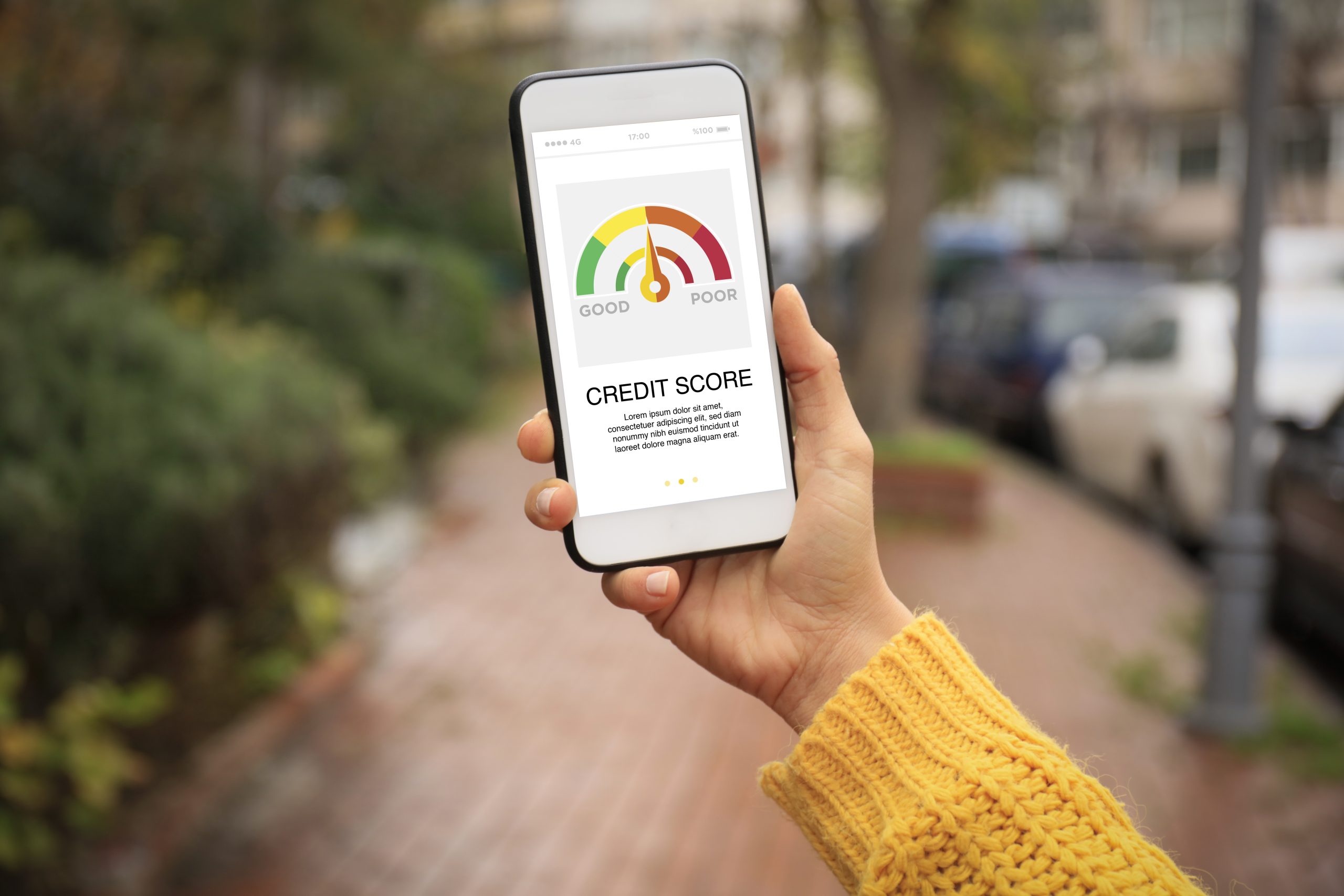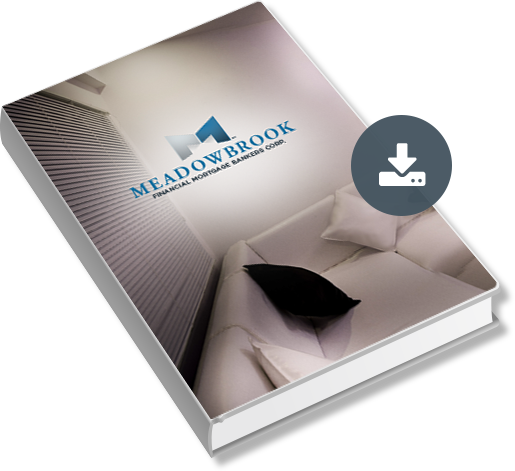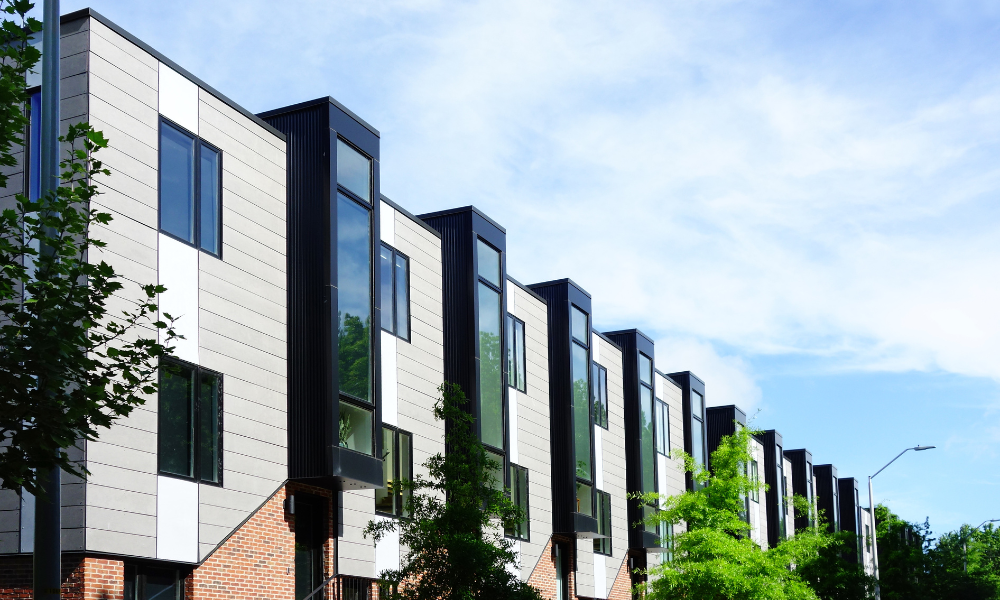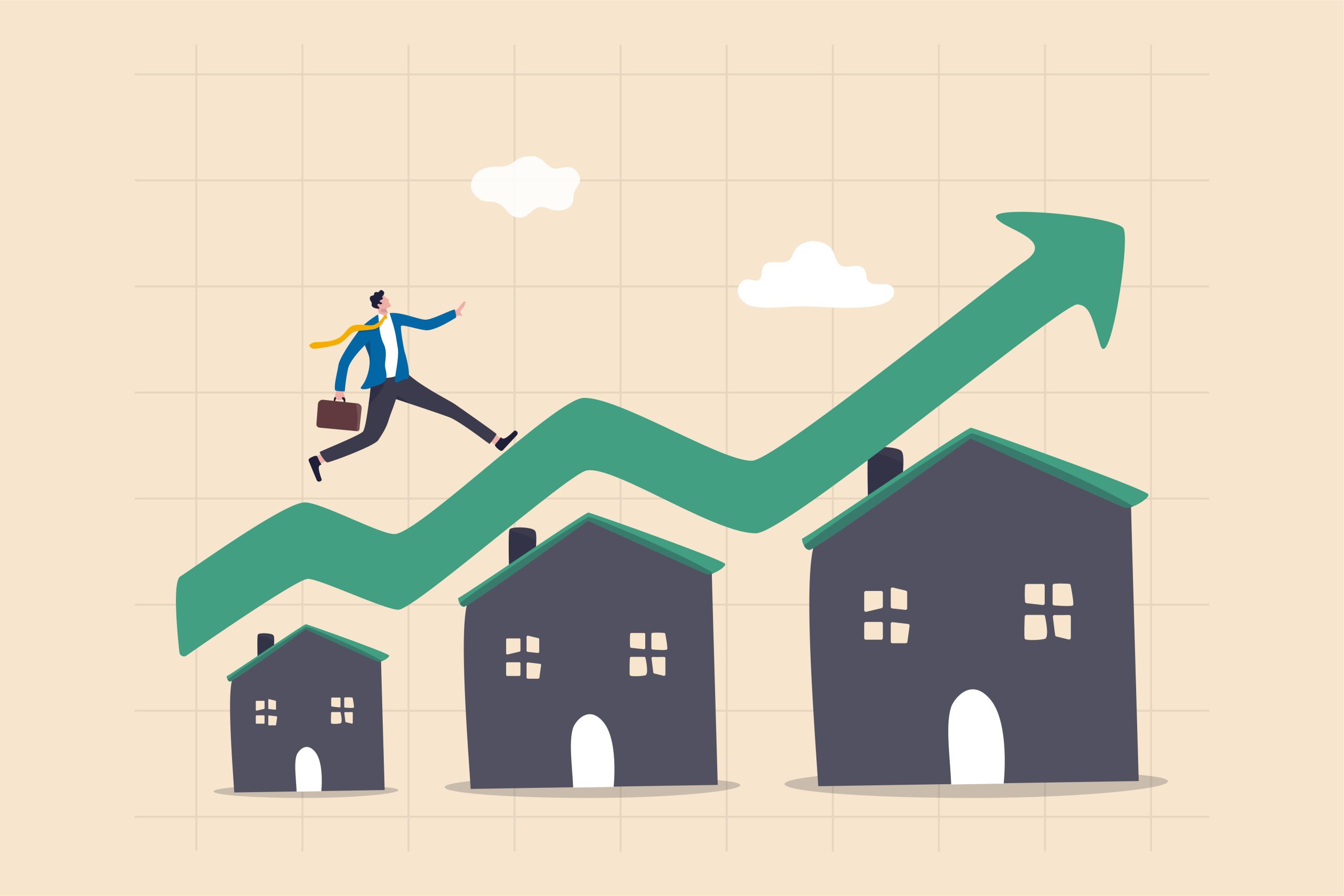Search Blog Posts by Blog Topic
Here’s How to Improve Your Credit Score for a Mortgage
January 22, 2022
Your credit score plays a key role in whether or not you qualify for a mortgage, the types of mortgage you may apply for, as well as your interest rate. This is because your credit score gives lenders an indication of how well you’ve managed your finances so far, which, in turn, helps them assess the risk you pose as a borrower. If you’re wondering how to increase your credit score to buy a house, you need to start by understanding how the system works and then take corrective measures based on your specific situation.
Which Credit Score Do Mortgage Providers Use?

While lenders rely on different credit scoring models, the U.S. Federal Housing Finance Agency requires providers of conventional mortgages to follow specific guidelines surrounding the FICO Scores they may use. The most commonly used models by the mortgage industry includes:
- FICO Score 2 (Experian/Fair Isaac Risk Model v2)
- FICO Score 5 (Equifax Beacon 5)
- FICO Score 4 (TransUnion FICO Risk Score 04)
Looking to Purchase a Home on Long IslandContact Us
It is common for mortgage providers to seek a single credit report that holds combined information from the reports issued by three credit bureaus – Experian, Equifax, and TransUnion – as well as their associated FICO Scores. Unless your scores from all three credit bureaus are the same, there is no telling which one a mortgage provider may rely on to make its lending decision. While you may check your FICO Score at myFICO.com, this is a paid service, and its basic plan costs $19.95 per month.
Getting a mortgage without a credit score is possible. This is essentially through smaller banking institutions whose loans are not secured by Freddie Mac or Fannie Mae.
The Effect of Your Credit Score on Interest Rates
Interest rates on mortgages continue to hover around their all-time low. According to data released by Freddie Mac, the weekly average interest rate of a 30-year fixed-rate mortgage (FRM) stood at 3.22% in the week that ended on 01/06/2022. Compare this with the all-time high of over 18.5% in the early 1980s, and you’ll realize that now might be as good a time as any to buy a home. However, even though interest rates are low as of now, the rate that applies to your mortgage depends on your credit score.
According to FICO, if your FICO Score is between 760 to 850, you may obtain a 30-year FRM with a 3.036% APR. It changes to 4.625% if you have a FICO Score of 620 to 639. If you get a $200,000 30-year FRM after making a 20% down payment, here’s what the difference might look like:
- At an interest rate of 3.036%, your monthly payment is $847
- At an interest rate of 4.625%, your monthly payment is $1,028
The difference in monthly payment is $181. Over the course of 360 months (30 years), this amounts to $65,160.
How to Improve Credit Score to Buy a House
If you’ve heard or read that you can boost your credit score overnight, know that this is not possible. If you, on the other hand, are wondering how to increase your credit score quickly, understand that where your creditworthiness stands has an effect on how much time you need for it to recover.
For instance, if you’ve missed just one payment, you may get back on track fairly quickly by continuing to make all your payments on time. However, if you’ve fallen back on multiple payments or have a poor credit utilization ratio, the road to recovery might take longer. According to data collated by Bankrate, people with poor credit need at least three months to recover if they close a credit card account, nine months if they are late on their mortgage payments, and over six years if they file for bankruptcy.
Raising your mortgage FICO Score, no matter it stands at the moment, requires following the same basic principles. Bear in mind that much like Rome wasn’t built in a day, repairing your credit requires time and effort.
1. Scrutinize Your Credit Reports
Errors or inconsistencies in your credit reports as well as instances of fraud can cause your credit score to drop. Start by taking a close look at your credit reports from the top three credit bureaus – Experian, Equifax, and TransUnion. All three let you get free copies of your credit reports by visiting their websites. If you find any mistakes, initiate the process of disputing the same with the credit bureau in question.
If you are successful in your attempt to get a mistake rectified, you may expect an improvement in your credit score. Even if you don’t find any mistakes on your credit reports, they still give you a clear picture of why your credit score is low in the first place.
Calculation of FICO Scores is based on five general metrics, which include payment history, credit utilization ratio, length of credit history, mix of credit, and new credit. While the specifics vary slightly across different scoring models, the basic criteria and their importance are essentially the same.
2. Make Payments on Time
Making all your credit card, loan, and utility bill payments on time has a positive effect on your credit score. Payment history accounts for 35% of your FICO Score calculation, making it the most impactful factor. This metric accounts for the number of late payments and their severity as well as repossessions and bankruptcies. Remember that even occasional late payments can have a telling effect on your credit score.
3. Bring Down Your Credit Utilization Ratio
Credit utilization ratio refers to the amount of credit you’ve used from your total available revolving credit. For instance, if you have a combined credit limit of $50,000 through different credit cards and lines of credit and have used $25,000, your credit utilization ratio is 50%.
Raising your credit score to buy a house requires that you get your credit utilization ratio below 30%. This is the case with FICO Score and VantageScore alike. This factor accounts for 30% of your FICO Score calculation and ranks just below payment history.
Looking to Purchase a Home on Long IslandContact Us
While paying off your debt as quickly as possible is one way to bring down your credit utilization ratio, another is by asking your existing credit card provider/s for a credit limit increase. This helps increase the total available credit you have, and thereby, lowers your credit utilization ratio. However, do this only if you’re sure that you won’t end up building more debt. Further, your card issuer might run a credit check before approving an increase. If it ends up finding unfavorable information in your credit reports, it might decide to lower your limit instead.
4. Keep Your Accounts Active
Keep your credit accounts active even after you finish repaying them completely. While this has a positive effect on your credit utilization ratio, it also helps build the length of your credit history. This factor accounts for 15% of your FICO Score. By keeping your oldest credit accounts active, you add to the length of your credit history, and this has a positive effect on your credit score. The converse holds true as well, so when you’re working on improving your credit to buy a house, don’t close your old accounts any time soon.
5. Add Some Mix to the Equation
Credit mix accounts for 10% of your FICO Score. This essentially refers to the different types of credit that show on your credit reports. If you only have credit cards, consider getting a personal loan, a line of credit, or a credit-builder loan to add to the mix. However, do this only if you’re absolutely sure that you’ll be able to make timely payments.
6. Refrain From Getting New Credit Often
Every time a lender runs a hard inquiry or a hard pull on your credit report, you may expect a small drop in your credit score. You may recover from this drop quickly if you maintain responsible credit behavior going forward. If you apply for new credit often, the impact is greater and you’ll need more time for your credit score to recover. If you plan to get a mortgage to purchase a home in the near future, it is best that you refrain from applying for any other type of credit until you get that out of the way. This factor accounts for 10% of your FICO Score.
How to Increase Your Mortgage FICO Score From Scratch?
If you’ve only just begun your journey to build your credit score and have no credit history to fall back on yet, there are a few ways through which you may work on improving your FICO Score.
- Get a secured credit card. Qualifying for a secured credit card is typically easier than for a conventional credit card. This is because you need to pay a security deposit to get a secured card and the same usually functions as your credit limit. Your card provider reports your payments to credit bureaus, and this helps build your credit score.
- Become an authorized user. If you’re unable to qualify for a credit card on your own, you may ask a family member or friend who has a credit card to add you as an authorized user. In this case, the primary user’s responsible use of his/her card will have a positive effect on your creditworthiness. However, the converse holds true as well.
- Apply with a cosigner. One way to get past the roadblock of not qualifying for a credit card is to apply with a cosigner who will qualify. In this case too, how well or poorly the other person uses his/her credit card will have a bearing on your credit score.
- Self-report. You might be able to improve your credit score by self-reporting the payments you make toward rent and utility bills. Experian Boost, a free service, helps you build your credit history by reporting payments you make toward utilities, phone, and popular online streaming services. UltraFICO works along similar lines too.
Getting a Perfect Credit Score to Buy a House

The best credit score one can get through FICO and VantageScore models is 850. Data released by FICO surrounding what the high achievers have in common shows that of all the people who qualified to get credit scores in April 2019, 1.6% had perfect scores of 850. If you’re wondering how to increase your credit score to 800 or higher, know that people in this bracket tend to exhibit similar traits. These include:
- No missed payments
- No negative information on their credit reports
- Well-established lengthy credit histories
- Low credit utilization ratio
- Very few inquiries for new credit
What Credit Score Do You Need to Get a Mortgage?
Credit score requirements, as listed by Experian, vary based on the type of mortgage you seek.
- For a conventional loan, your credit score should ideally be 620 or higher.
- United States Department of Agriculture (USDA) loans require a minimum credit score of 580, but you may qualify with a lower score in some circumstances.
- Veterans Affairs (VA) loans have no preset credit score requirements in place. However, lenders typically offer these to people with scores of 620 or higher.
- With Federal Housing Administration (FHA) loans, you need a credit score of at least 500 if you plan to make a 10% down payment. If you plan to make a 3.5% down payment, you’ll need a credit score of 580 or higher.
Looking to Purchase a Home on Long IslandContact Us
Conclusion
Check your credit score before applying mortgage because this will give you a clear indication of where you stand. Bear in mind that while your credit score can influence the types of mortgages for which you may apply, it also has a bearing on the interest rate you will receive. This requires that you do your best to improve your credit score before applying for a mortgage. After all, even a small difference in interest rates can have a significant impact on bringing down the cost of your home loan.
Resources:
http://www.freddiemac.com/pmms/
https://www.myfico.com/loan-center/home-mortgage-rate-comparison/
https://www.experian.com/blogs/ask-experian/credit-education/score-basics/credit-utilization-rate/
https://www.fico.com/blogs/850-fico-score
https://www.experian.com/blogs/ask-experian/what-credit-score-do-i-need-to-buy-a-house/
https://www.bankrate.com/finance/credit-cards/how-long-does-it-take-to-get-a-credit-score-up/
Ready To Get Started?
Fill out the form below and a mortgage professional will get back to you shortly.

First Time Homebuyer’s Guide
Considering homeownership but not sure where to begin? The Meadowbrook Financial Mortgage Bankers Corp. guide to home buying will make the process easy all in one packet.
Recent Articles

An In-Depth Condo Buying Guide
2 July, 2025One reason why many first-time homebuyers prefer condos over single-family homes is that they are typically more affordable and give them the means to start…

Should You Buy an Under-Construction, New Build, or…
18 June, 2025The dream of owning a home often comes with having to make an array of decisions, and perhaps none is more crucial than choosing the…

How Do Pets Influence Homebuying?
1 May, 2025Adding a furry friend to your family can bring so much joy to your life. Whether it’s a dog, cat, bunny, or other, they’re sure…


